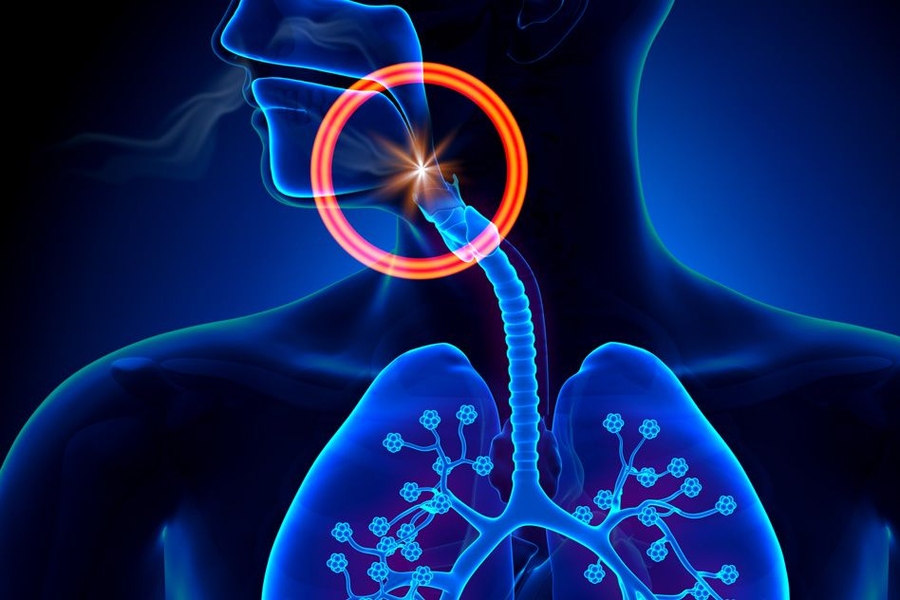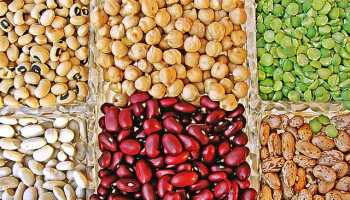
One type of vegetarianism has environmental motivations. This diet is aimed at creating a sustainable diet that eliminates the negative environmental effects of animal-based food production. It is estimated that 15% of global greenhouse gas emissions come from livestock production. Vegetarians can help to reduce this.
Climate change
Your diet can have a huge impact on the climate change effects. Global warming has been linked to eating meat. 14.5% of global carbon emitted from meat production. Vegetarians are less likely to emit carbon. Vegetarians will emit less carbon by 2050 than a vegan diet.
Vegetarian diets can also help to combat climate change. In the US, for example, plant-based "burgers" are becoming more popular. Gallup polling suggests that around 5 to 6 percentage of Americans are vegetarians. Researchers predict that the Covid-19 virus will have an impact on the meat industry, and although per capita meat consumption is up in recent years it could even decline by the end. Additionally, governments should adopt strict policies to encourage consumption of plant proteins.
Meat consumption
There are several benefits to a vegetarian diet. You will eat a healthier diet and your carbon footprint will be lower. It also helps to preserve your animal welfare and social values. It is delicious and can provide a lot of nutrition. However, vegetarians should limit their meat consumption.

Research has shown that meat consumption has a negative effect on the environment. Consuming meat can increase your risk of getting sick. Australia has a high rate of obesity and non communicable diseases.
The environmental impact of meat consumption
Meat is the most polluting food we eat, but there are alternatives to cut down on your meat intake. You can reduce your carbon footprint while also helping the environment by choosing to be vegetarian or vegan. There are many choices, no matter whether you like chicken, fish or beef.
Using a vegetarian diet can reduce greenhouse gases by about 2%. The United States and many European nations eat a lot meat. It is possible to reduce your carbon footprint by giving away meat and dairy products. One study showed that cutting your meat intake by around 13 percent could help reduce your carbon footprint. This would result in a reduction of your meat consumption of about one-third.
A vegetarian diet can have health benefits
A vegetarian diet offers many health benefits for both pregnant and nursing mothers. Vegetarians are likely to have lower levels of cholesterol and saturated fat, which is important for cardiovascular health. They are also more likely to have higher levels vitamin and dietary fibre. They also have lower BMIs so they are more susceptible to having low blood pressure. Vegetarian diets are thought to reduce the chance of developing chronic illnesses.
Studies show that eating a vegetarian diet can lower your risk of developing cardiovascular disease and type 2 diabetes. It lowers cholesterol and lowers blood pressure. It has been shown to decrease the risk of getting cancer. Vegetarians are generally less likely to get cancer than those who eat meat or dairy. Aside from this, vegetarians tend to have lower body mass and total cholesterol.

Vegan diet has the potential to be sustainable for the environment
Eating a vegetarian diet has several advantages. First of all, it reduces your carbon footprint. The reduction in emissions from a vegetarian diet is approximately 1,200 lbs per year, according to studies. This reduction is much higher than the carbon footprint associated with eating meat or dairy products. According to the Food and Agriculture Organization of the United Nations emissions are largely due animal agriculture. These emissions include methane, nitrous oxide, and manure storage and use. While it's not possible for everyone to eat vegan completely, moderate consumption of meat can have similar effects.
Also, the study showed that a vegetarian diet can reduce emissions of CO2, NO2, and Ch4 by 17 percent. The study also found that a vegan diet places less strain on the world's water resources: it consumes 14.4% less freshwater, and 20.8% less groundwater, than a normal diet. However, the environmental impact of a vegan diet is not as high as that of a vegetarian diet, since most vegans replace meat products with highly processed plant-based products.
FAQ
Here are five ways to lead a healthy lifestyle.
What are 5 ways to live a healthy lifestyle?
Living a healthy lifestyle involves eating right and exercising regularly. Good eating habits include avoiding processed foods, sugar, unhealthy fats, and avoiding junk food. Exercise can help you burn calories and strengthen your muscles. Get enough sleep to improve your memory and concentration. Stress management helps reduce anxiety and depression. Fun is key to staying young and vibrant.
What is the difference of fat and sugar?
Fat is an energy source that comes from food. Sugar is a sweet substance found naturally in fruits and vegetables. Both fats (and sugars) have the exact same calories. But fats are twice as calories as sugars.
Fats are stored in the body and contribute to obesity. They can lead to cholesterol buildup in the arteries, which could cause heart attacks or strokes.
Sugars are quickly absorbed into the body and provide instant fuel. This causes blood sugar levels to rise. High blood glucose levels can pose a danger because they increase the chance of developing type II Diabetes.
What's the difference between a calorie and kilocalorie?
Calories measure the amount energy in food. Calories are the unit of measurement. One calorie contains the energy needed to raise the temperature of one gram of water by one degree Celsius.
Kilocalories are another term for calories. Kilocalories are measured in thousandths of a calorie. 1000 calories equals 1 kilocalorie.
Is cold a sign of a weak immune response?
Being cold gives you a weaker immune system because when you are cold, your body produces less white blood cells which fight infections. However, being cold also makes you feel better because your body releases endorphins into your brain which reduce pain.
What can I do to boost my immune system?
There are trillions of cells in the human body. Each cell works together to create organs and tissues that fulfill specific functions. If one cell dies, a new cell replaces it. The chemical signals known as hormones are used to communicate between cells. Hormones regulate every bodily process, from growth and development to metabolism as well as immunity.
Hormones refer to chemicals secreted in glands throughout the body. They circulate through the bloodstream and act as messengers to regulate how our bodies function. Some hormones can be produced within the body while others can be made outside.
Hormone production begins when a hormone-producing gland releases its contents into the bloodstream. Once hormones are released, they move through the body to reach their target organ. In some cases hormones can remain active for a very short time. Some hormones last longer and influence the body's functionality even after leaving the bloodstream.
Some hormones can only be produced in large quantities. Some hormones can be produced in large amounts.
Certain hormones are only produced at certain times in life. Estrogen is one example. It's produced in puberty, pregnancy and menopause. Estrogen assists women with breast development, bone density, and osteoporosis prevention. It is also known to promote hair growth and keep skin soft and smooth.
What makes an antibiotic effective?
Antibiotics kill harmful bacteria. To treat bacterial infections, antibiotics are used. There are many options for antibiotics. Some are taken orally, some are injected, and others are applied topically.
People who have been exposed are often given antibiotics. If someone has chicken pox, they might need to take an oral antibiotic in order to prevent shingles. Penicillin might also be administered to someone with strep throat. This will help prevent the possibility of developing pneumonia.
A doctor should give antibiotics to children. The possibility of side effects that can cause serious side effects in children is greater than for adults.
The most common side effect associated with antibiotics is diarrhea. Other side effects possible include dizziness, nausea, vomiting, stomach cramps, stomach pains, dizziness and allergic reactions. These side effects typically disappear once treatment is complete.
What is the problem?
BMI stands for Body Mass Index. This is a measure of body fat that is calculated based on height or weight. This formula calculates BMI.
Divide the weight in kilograms by the height in meters squared.
The result is expressed using a number from 1 to 25. Scores of 18.5 and higher indicate overweight, while scores of 23 and higher indicate obesity.
A person of 100kg with a height of 1.75m will have 22 BMI.
Statistics
- This article received 11 testimonials and 86% of readers who voted found it helpful, earning it our reader-approved status. (wikihow.com)
- WHO recommends consuming less than 5% of total energy intake for additional health benefits. (who.int)
- The Dietary Guidelines for Americans recommend keeping added sugar intake below 10% of your daily calorie intake, while the World Health Organization recommends slashing added sugars to 5% or less of your daily calories for optimal health (59Trusted (healthline.com)
- According to the 2020 Dietary Guidelines for Americans, a balanced diet high in fruits and vegetables, lean protein, low-fat dairy and whole grains is needed for optimal energy. (mayoclinichealthsystem.org)
External Links
How To
10 tips for a healthy lifestyle
How to keep a healthy lifestyle
Our fast-paced world means that we aren't getting enough sleep, don't eat enough, drink too much alcohol, and smoke too many cigarettes. We don’t care enough about our health.
It can be very difficult to have a healthy diet, exercise routine, and work schedule when you do so many things simultaneously. It's even more difficult when you're stressed because your mind tells you that it is impossible to handle this situation so you start feeling guilty about it and give up.
If you feel like something is wrong with your body, then it probably is. Consult a doctor immediately to get his/her opinion on your current condition. If you find nothing unusual, it could be stress from your job.
People believe they are lucky because they can go to the gym every day or have friends who keep them fit. These people are truly lucky. These people have no problems. They got everything under control. I wish every person could be like them. Unfortunately, many people are not able to balance their work and personal lives. Many people fall prey to bad habits, which can eventually lead them to developing diseases like heart disease, diabetes and cancer.
These tips can help you improve your lifestyle.
-
You should get 7 hours of sleep per night minimum and 8 hours maximum. This means sleeping properly and not consuming caffeine in the hour before bed. Caffeine blocks melatonin hormones which makes it difficult to fall asleep. You should also ensure that your bedroom has a dark, clean environment. If you work late at night, make sure you have blackout curtains.
-
Get healthy - Start your day with a good breakfast. Try to avoid sugar products, fried foods, processed food and white breads. Try to include whole grains, fruits, and vegetables for lunch. You should eat healthy afternoon snacks that are high in fiber and protein. These include nuts, seeds beans, legumes, fish, cheese, and dairy products. Avoid sugary snacks such as cookies, chips, candies, cakes, and sodas.
-
Get plenty of water. Most people don't drink enough. Water is good for us. It helps us lose more calories, keeps the skin soft and youthful, improves digestion, and flushes out toxins. Aim to drink six glasses of fluids daily to lose weight more quickly. The best way to measure your hydration level is by checking the color of your urine. Yellow is dehydrated. Orange means mildly dehydrated. Pink means normal. Red means overhydrated. Clear means extremely-overhydrated.
-
Exercise - Regular exercise has been shown to reduce depression and increase energy levels. Walking is a good way to get fit and improve your mood. Even though walking looks simple, it requires effort and concentration. Your brain needs to concentrate on walking, while taking deep breaths and slowing down. Walking for 30 minutes at a steady pace can help you burn between 100 to 150 calories. Start slow and work your way up. Stretching after exercise is important to avoid injury.
-
Positive thinking is crucial for mental health. Positive thinking can create a happy atmosphere within us. Negative thinking can drain our energy and create anxiety. Try to visualize the things you are aiming to achieve. Break down the tasks into smaller steps if you feel overwhelmed by all the new tasks. Remember that you are bound to fail sometimes but just pick yourself up and start again.
-
You must learn to say No - Too often we get so busy we forget how much time is wasted on things that are not important. It is important you can say No when it is necessary. Not saying "no" is rude. You are simply saying "no" to something. You can always find other ways to complete the job later. You should set limits. Ask for help. Delegate the work to someone else.
-
Take care of your body - Keep track of your diet. A healthier diet will help boost your metabolism, and you can lose extra weight. You should avoid eating too many oily and heavy foods, as they can increase your cholesterol. It is a good idea to eat three meals per day and two snacks each day. You should consume around 2000 - 2500 calories per day.
-
Meditate - Meditation is a great stress reliever and reduces anxiety. You can relax your mind by simply sitting still and closing your eyes. This exercise will allow for clarity of thought and be extremely helpful in making decisions. Meditation regularly can make you happier and calmer.
-
Breakfast is the most important meal in the day. Skipping breakfast could lead to eating more lunch. It is never too late to eat a balanced breakfast as long as you eat within 1 hour of waking. A healthy breakfast can boost your energy levels and help you control your hunger.
-
Healthy food is the best. Food can have a profound effect on our moods. Avoid junk food, artificial ingredients and foods that are high in preservatives. These foods make your body feel acidic, and can cause you to crave them. Vitamins and minerals found in fruits and vegetables can improve your overall health.
-
***